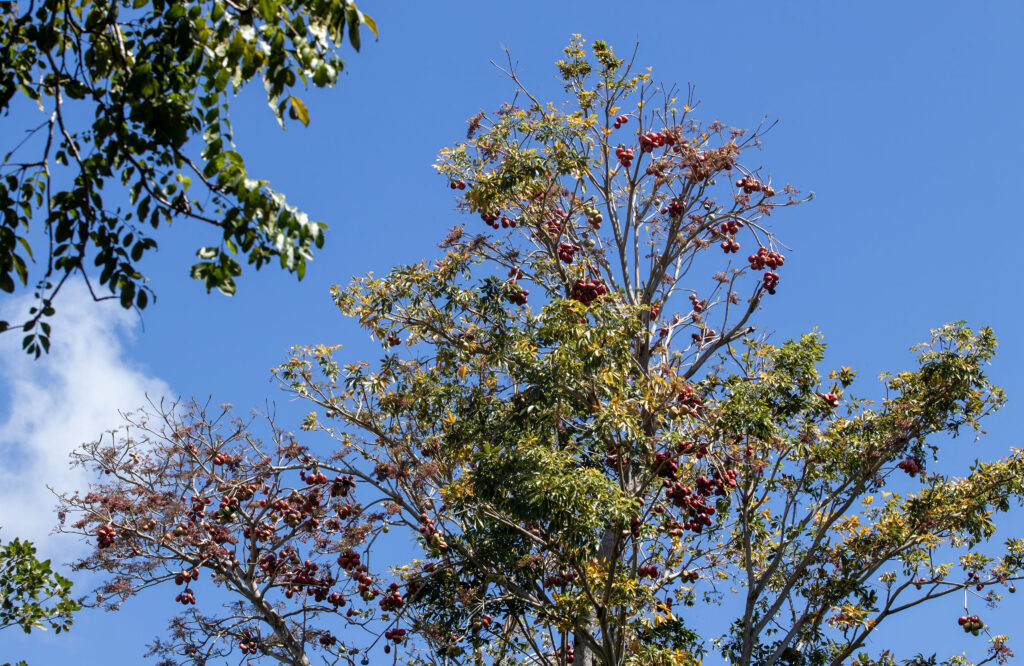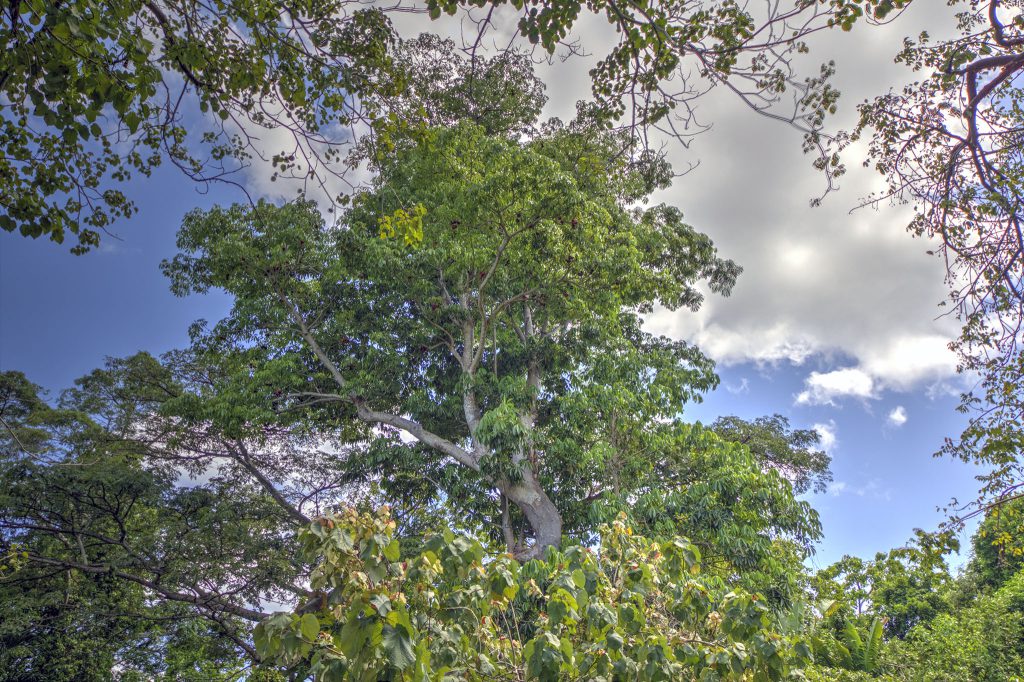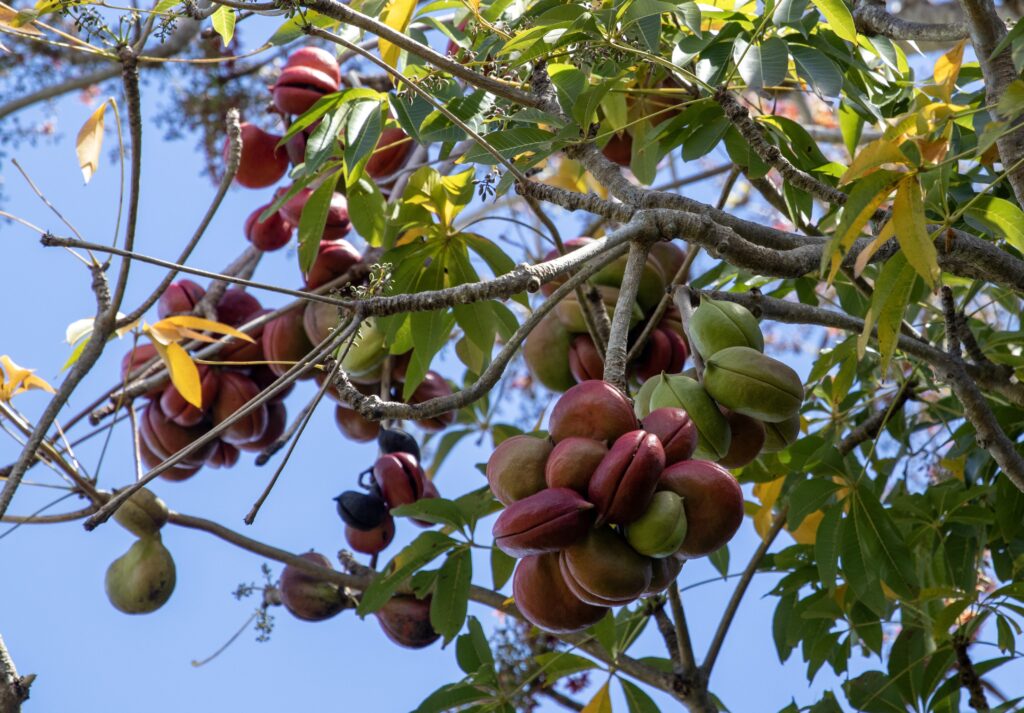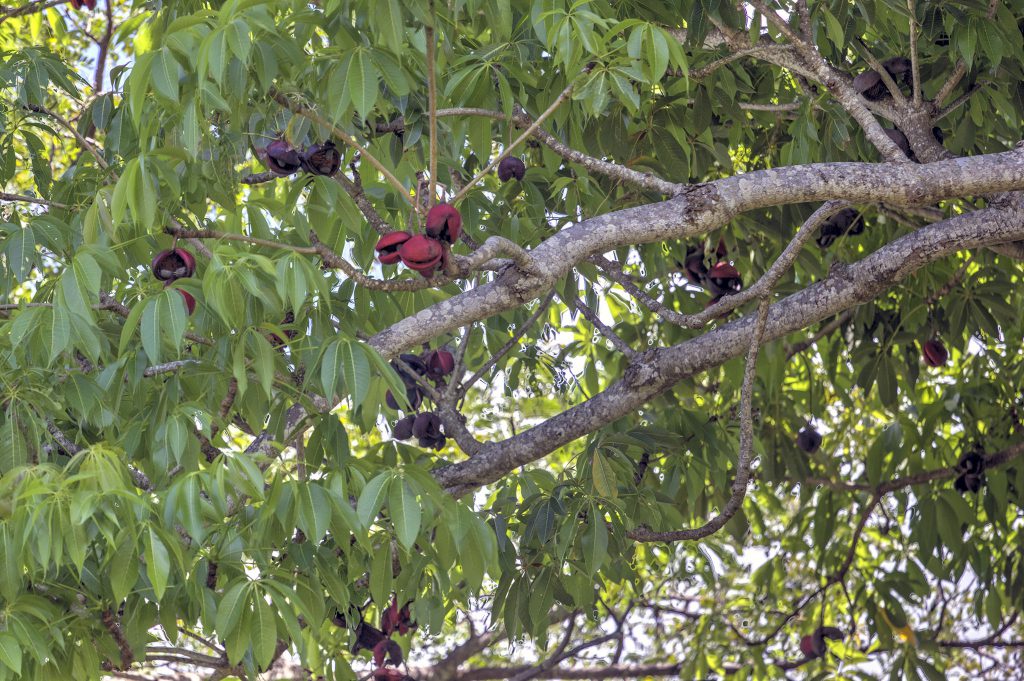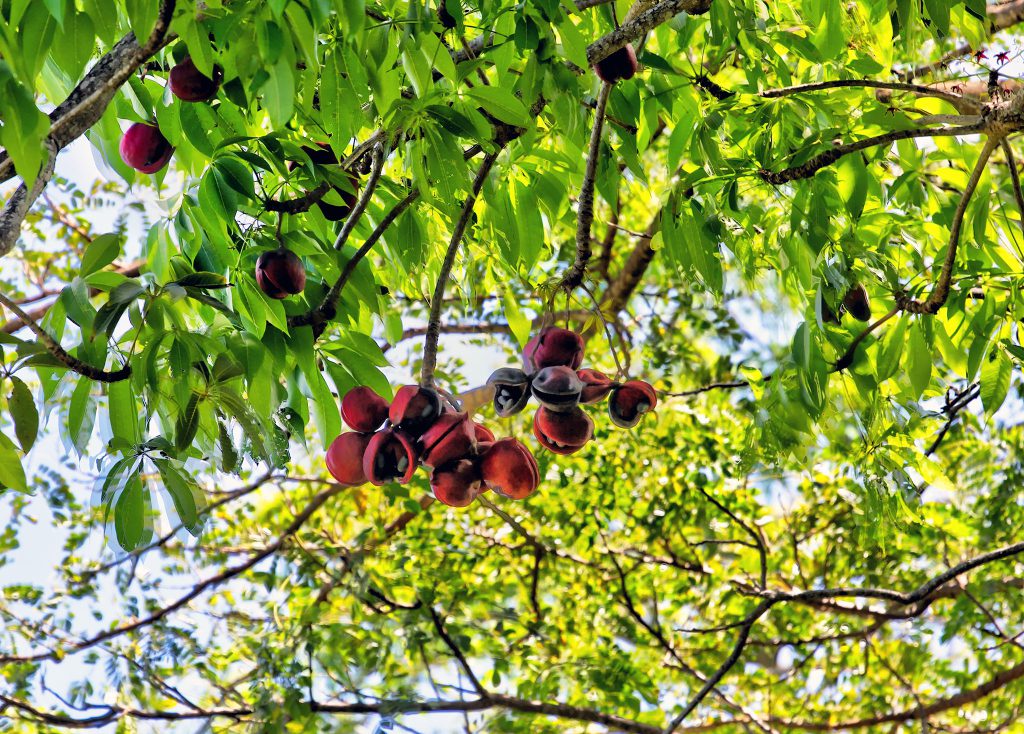Wild Almond Tree
Scientific name: Sterculia foetida
Common names: Wild almond, Indian almond, Hazel sterculia, Skunk tree, Stinky sterculia, the bastard poon tree, Java olive tree
Sterculia foetida is a soft wooded tree that can grow up to 35 metres (115 feet) tall with a diameter at breast height of up to 95 cm. It is a tropical ornamental tree with beautiful flowers and edible nuts. Sterculia foetida is a medium to large tree, reaching heights of 30-40 meters, This species is deciduous, relatively fast-growing, with whorled horizontal branches, and is easily propagated from seed or cuttings. It is adapted to hot tropical climates on a variety of soil types. The tree is umbrella-shaped, spreading, and provides various benefits such as food, medicines, and more. The example shown here is located at Estate St George Botanical Gardens and is easily over 100 feet tall.
Medicinal uses:
Sterculia foetida has several traditional medicinal uses in various cultures. While scientific research on its medicinal properties is limited, it has been used in traditional medicine for the following purposes:
- Digestive Health: The seeds of Sterculia foetida are known to have laxative properties and are used to relieve constipation. They are also used to treat gastrointestinal issues such as indigestion and stomachaches.
- Respiratory Conditions: In some traditional medicine systems, Sterculia foetida is used to treat respiratory conditions such as coughs, bronchitis, and asthma.
- Anti-inflammatory: The bark and leaves of Sterculia foetida are believed to have anti-inflammatory properties and are used to reduce inflammation and swelling.
- Skin Disorders: Some traditional medicine practices use Sterculia foetida extracts topically to treat skin disorders such as eczema, psoriasis, and dermatitis.
- Antimicrobial: Sterculia foetida extracts are believed to have antimicrobial properties and may be used to treat infections.
- Other Uses: In traditional medicine, Sterculia foetida is also used to treat fever, rheumatism, and as a general tonic.
